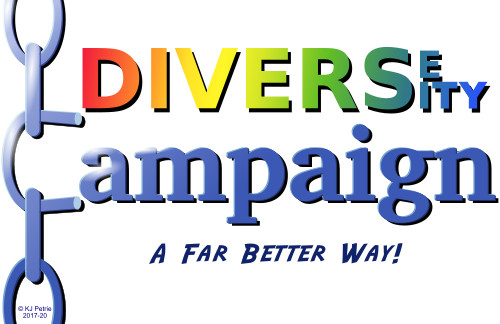Opinion
25th August 2020
Temperaturism: a new form of unfair discrimination
One of the most reliable signs of infection is an elevated temperature, and during the current epidemic the Government has issued guidance of a threshold temperature above which Coronavirus should be suspected until proven absent. In general, that’s a good idea, but it does introduce a potential new form of unfair discrimination. For, although temperature is a reliable sign of infection, it isn’t necessarily conclusive. For reasons of individual physiology, especially glandular or brain-related disabilities, a person’s normal temperature might deviate from the usual. I know because my fiancée’s son is such a person.
In fact, he is an interesting example, because his temperature is often higher in one ear than the other. It is usually around half a degree higher than the rest of us. I am no medic, but I presume this is related to his damaged brain which does not quite control temperature in the same way as most people’s. He doesn’t show any obvious signs of distress from this. For him it is normal.
However, that is until his school started sending him home last winter. They deemed him to be ill frequently because his temperature was often nearer 38 than 37. To his mother that was no surprise. Nor was it to his paediatrician, but the school sent him home anyway. Then, in March, they sent him home for six months. He finally goes back in September, but will he be allowed to stay? His temperature remains variable, so will they send him home every time it tops 37.5, which we know it will regularly, because it just does?
He is registered disabled, and his disability is a “Protected Characteristic”, but his temperature, sharing its cause with his disability, is not. Why not? Simply because nobody has thought to make it one. Disadvantaging a person because they happen to have a higher temperature than most when there is no health issue involved is just as unfair as doing so on the basis of any other arbitrary metric - eye colour, hair or skin colour, height or gender. For most purposes, most of the time, these things are irrelevant to a person’s needs or abilities, so we are rightly required to ignore them. Why should a person’s core temperature be any different? That too, is just a personal characteristic of little relevance to anyone else, so long as it isn’t an indication of an infection risk. What does it matter to you how hot or cold I run naturally?
Yet, in this thime of CoViD, it is made to matter, even when it doesn’t, and this illustrates the absurdity of specified “Protected Characteristics” as a means of defeating unfair discrimination. This child is likely to suffer harm to his development and learning simply because he runs warmer than most of us. It is a cruel and unnecessary abuse of his rights, except the law, as it stands, accords him no rights, because this particular individual personal characteristic is not a protected one.
Yet, if we are to move away from specified characteristcs as the basis of social justice, how do we ensure people are protected against abuse on arbitrary grounds? Will it not be more difficult to define such abuse or to identify what is or is not reasonable?
I suspect it will be, but that does not mean it isn’t the right thing to do. Rough justice is inherently unjust even if it is simple to enforce. We do not accept this kind of rough protection of approximate rights when it comes to other recently-legislated issues like Health and Safety at work or Data Protection. There, the onus is very much on those controlling a situation to think through what is or is not appropriate, and ultimately it is for the courts to decide. This is not, on the whole, considered to enable employers or Data Controllers to ignore the rights of those for whom they exercise responsibility; rather it encourages them to fear litigation and to err on the side of caution, since any court case is likely to be complex and therefore expensive, so why shouldn’t legislation protecting people from arbitrary abuse or unfair treatment work in the same way? Is it because it would de-politicise the issues and politicians are too keen to play identity politics with the electorate on issues of social justice?
As a society we need badly to be brought together by agreed values of justice everyone can see as fair and reasonable, but that would undermine political tribalism. To some extent, our current system needs injustice to be perceived and generate the conflict which enables politicians to distinguish themselves from each other, and the public to side with one party or the other. The last thing politicians would want is an outbreak of consensus leaving them nothing to fight over.
So, in 21st century Britain we still have anti-discrimination laws which discriminate arbitrarily about whom they will or won’t protect.
Really, we should do better than that.

